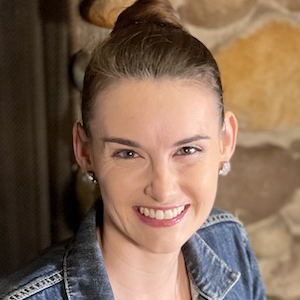Your child has been progressing through school, homework assignments have been getting tougher, and workloads getting bigger. You notice your child starting to struggle in ways they never had before, so you signed them up for a study skills course. Which is fantastic! All students need to learn how to learn, and study skills are not a part of most core curricula in schools. So finding an outside resource to teach them the tools and strategies they need to do their best in school is a phenomenal move.
But even though the strategies they may be learning in this course can be extremely effective, over my 15+ years of working with students, I have seen students time and again learn an exceptionally valuable strategy, use it a few times, and then after a few days go back to their usual way of working as if they never learned the strategy in the first place.
Here are three reasons why this happens:
Habit
We all know how hard it is to break habits that we currently have and start new ones. And when we learn a new skill in one context, like a study skills course, and we’re not shown how to generalize that skill to other contexts, like our regular school day, there’s just no way we’re going to integrate that new skill into our daily habits in all the areas of our life where we need them.
Complexity of the problem
School-related challenges are complex. Students need study strategies. But they also need to learn to manage their time and stay organized. They need to develop the mindsets that are going to help them stay positive and persistent. And they can’t just learn these things once and then use them perfectly going forward. They need practice. And when they’re just starting out, that practice needs to be expertly guided in the real context that they will need to use the skill in moving forward. Otherwise, they risk practicing the wrong way and spending their time counterproductively.
Lack of customizability
In all likelihood, the strategies being taught in your child’s study skills course are just too rigid to be useful.
Think back to being a new parent. When you picked up a book by an “expert” telling you how to get your baby to sleep more, cry less, or stop night feeding, were reading a “one-size fits all” approach. Maybe it worked for your baby! But maybe it didn’t and you abandoned it after one or two tries. And you know that strategy did not work for all babies.
The promise of most study skills courses is that if your child follows the techniques exactly as they are taught, they will be successful. But the idea that it will make sense for all students to use any one technique in any one way is entirely unrealistic. One-size fits all solutions simply do not work.
That is why when we teach study skills at School Without Suffering we are never prescribing solutions. Instead, we offer strategies and alternative ways of thinking and we support our students to take what works for them and craft and refine their own solutions. We help our students think critically about what we’re offering them and reflect on how what we’re offering them fits into their lives into the way that they want to work into what works for them and tweak what they need to tweak, take what works for them, leave what doesn’t, and really find their own solutions.
This approach is easy to see in the way we teach students to plan their time.
At the beginning of the week (Sunday or Monday), the student follows our directions to Brain Dump everything they have on their plate, then identify their top priorities for the week. Then, they create a detailed schedule for the week showing when they are going to do what. (Our directions walk them through how to do this so that their priorities are planned first and then everything on the Brain Dump gets its own spot on the schedule.)
After they plan, they do their best to follow that plan throughout the week without any pressure to do it “perfectly.” They just need to note what they’re able to follow easily and feels good, and to note anything that’s hard to follow or they’d like to do differently.
The next Sunday or Monday, they answer three reflection questions to help them determine what they’d like to plan the same and what they’d like to do differently.
Then they repeat.
And over time, they hone a system that really works for them, understanding that they have the skill to adjust as needed.
The bottom line is, for kids learning study skills, guided, flexible, habituation is key. Anything that doesn’t offer those to your child deserves a good healthy dose of skepticism from them and from you.

Founder & Principal Academic Coach
Laura Fragomeni, Ed.M.
Laura Fragomeni is a Harvard-educated master academic coach and the founder of School Without Suffering, an academic coaching practice specializing in helping struggling students around the world be happy and successful.

